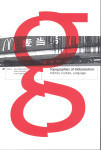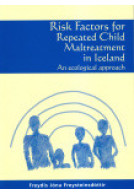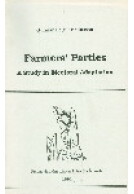Topographies of Globalization (Paperback)
Politics, Culture and Language
Imprint: University of Iceland Press
Pages: 320
ISBN: 9789979545781
Published: 30th June 2004
Script Academic & Professional
Pages: 320
ISBN: 9789979545781
Published: 30th June 2004
Script Academic & Professional
You'll be £22.00 closer to your next £10.00 credit when you purchase Topographies of Globalization. What's this?
+£4.99 UK Delivery or free UK delivery if order is over £40
(click here for international delivery rates)
Need a currency converter? Check XE.com for live rates
(click here for international delivery rates)
Need a currency converter? Check XE.com for live rates
The term 'globalization' has been used to describe the intensification of cross-border flows - whether in the realm of ideas, culture, finance/trade, or human mobility. Like many other vital ideas, such as nationalism and modernization, globalization is fraught with controversy. But no matter where one stands, it is a site of an ongoing intellectual endeavor of definition, interpretation and redefinition - a contested terrain that continues to have profound, if unequal, impact on people's lives around the world. Given the inherent tension between the global and local, this phenomenon is perhaps more accurately explained by the conceptual hybrid 'globalization'. The diverse contributions in this volume are an attempt to come to grips with some of the implications of this process by problematizing and engaging it. It grew out of an interdisciplinary conference on globalization held at the University of Iceland in late autumn 2002 as part of an international research project co-ordinated by GERM (Groupe d'Etudes et de Recherches sur les Mondialisations), involving a large group of academics, universities, and institutions. The volume emphasizes specific aspects of the globalization debate: politics, culture, gender, and language/translation. One focus - articulated among others by Zygmunt Bauman - is on the reconfigurations of political power relationships between the West and the Rest, the 'war on terror' and conflict resolution, whether in the name of peacekeeping, nation-building or identity changes. Another theme involves the problematization of the culture concept, its place in the public domain, and the redefinition of identities as a result of globalization. A third aspect deals with attempts to illuminate how globalization processes may deepen gender, class and race inequalities in the absence of binding rules and collective social responsibility. Finally, the focus is on the changing attitudes toward language/translation in a heavily mediatized and accelerated world.
Other titles in University of Iceland Press...














